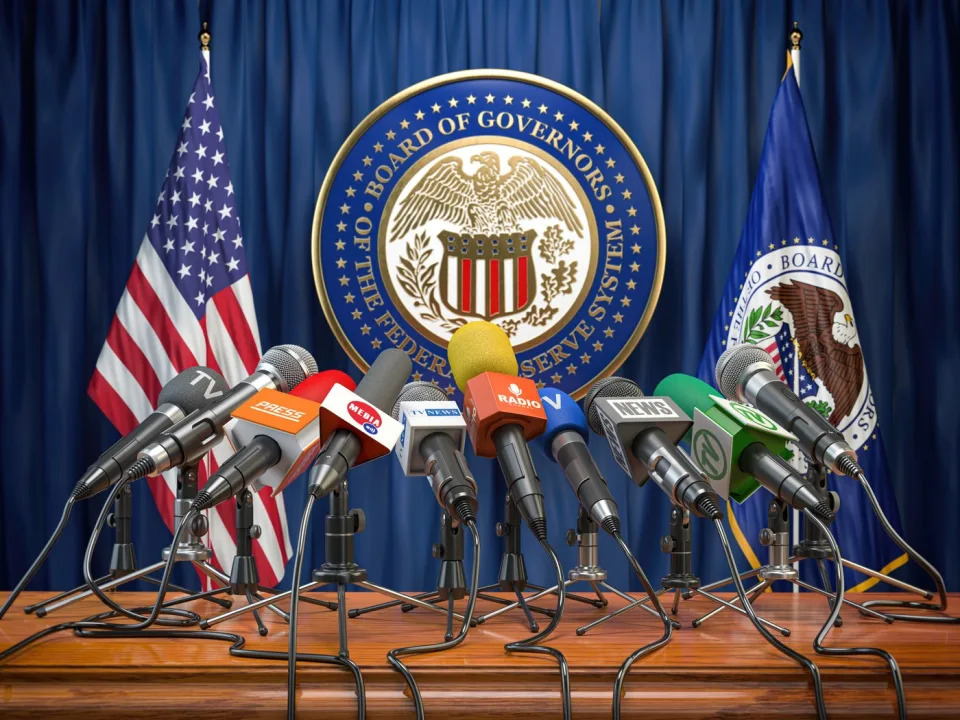News
You Won't Believe What Michael Saylor Just Said About Bitcoin
There's no denying that cryptocurrency is a polarizing asset class. While it's beginning to receive some level of interest at an institutional level, I'd wager that the majority of crypto enthusiasm still resides among retail investors.
Given this dynamic, it can be a big deal when a notable personality makes a comment about crypto -- be it positive or negative. During the past couple of years, MicroStrategy Executive Chairman Michael Saylor has emerged as one of the biggest supporters of the crypto realm. In particular, the tech mogul is enamored of Bitcoin (CRYPTO: BTC) .
On Dec. 16, Saylor sat down for an interview with CNBC's Sara Eisen and told the anchor he thinks President-elect Donald Trump is serious about creating a strategic reserve of Bitcoin. Just one day after Saylor's comments, the price of Bitcoin soared to new heights, reaching more than $108,000.
Below, I'll break down why a Bitcoin reserve could make sense, the mechanics of how building this stockpile would work, and what this could mean for Bitcoin investors.
Why a strategic Bitcoin reserve could make sense
Currency is a finicky thing. Whether it's the U.S. dollar, the euro, or the Chinese yuan, the values of different currencies are constantly moving. But unlike the volatility experienced in stocks, differences in currencies relative to one another could carry some weight when it comes to trade, borrowing, and more.
During the past few years, inflation reached four-decade highs, which prompted the Federal Reserve to institute 11 interest rate hikes in an effort to curb rising prices for goods and services. Given the inflationary pressures on the U.S. dollar, consumer purchasing power contracted significantly.
During times of economic uncertainty, it's not uncommon for investors to either stockpile cash or flock to alternative assets such as crypto. Moreover, given Bitcoin's fixed supply of 21 million coins, adding some of the cryptocurrency to the U.S.'s balance sheet can act as a hedge against inflationary pressures on fiat currency (like the U.S. dollar) while also adding an extra layer of diversification.

How to build a Bitcoin reserve
While President-elect Trump and some of his associates, such as Robert F. Kennedy Jr. and Elon Musk, have been vocal supporters of Bitcoin and crypto in the past, a lot of changes would need to be made from a regulatory perspective before the U.S. could begin building a strategic reserve of Bitcoin. In essence, Congress would need to pass a specific budget or amend existing legislation that would allow the U.S. Treasury to begin acquiring Bitcoin.
Moreover, given the lack of legal structure over Bitcoin and crypto in general, the Treasury would need to work with the Securities and Exchange Commission (SEC), the Commodity Futures Trading Commission (CFTC), and the Internal Revenue Service (IRS) to build a more aligned framework regarding how Bitcoin would be classified, and determine whether it's even eligible to be a reserve asset on the U.S. balance sheet.
The bottom line
In my eyes, building a Bitcoin reserve is more of a pie-in-the-sky ambition than a realistic scenario at the moment.
While I understand the theoretical benefits of stockpiling Bitcoin, it's imperative to remember that the prices of cryptocurrencies tend to experience outsized volatility compared to traditional assets. For this reason, Congress may feel that allocating a portion of the budget (taxpayer dollars) to a speculative asset is irresponsible.
I think the idea of a Bitcoin reserve is just that... an idea. It's intriguing, but I think it's less likely to happen anytime soon -- even with a pro-crypto administration coming to Washington in about two months.
I would encourage those interested in investing in crypto or Bitcoin to consider spot Bitcoin exchange-traded funds (ETFs), or brokerages that allow crypto trading such as Coinbase or Robinhood .
Before you buy stock in Bitcoin, consider this:

